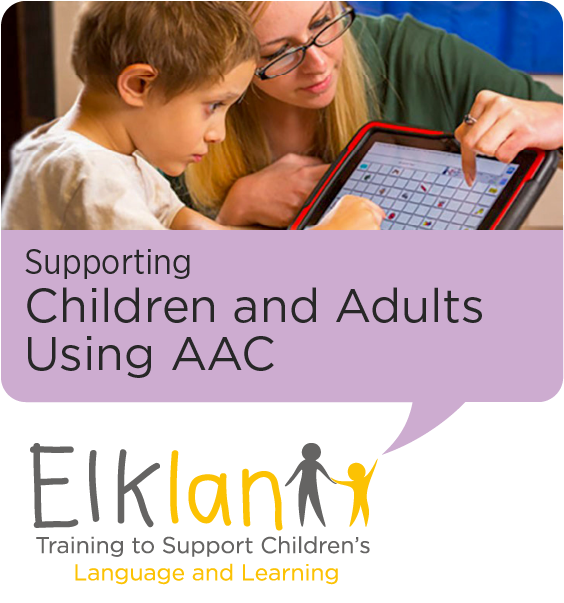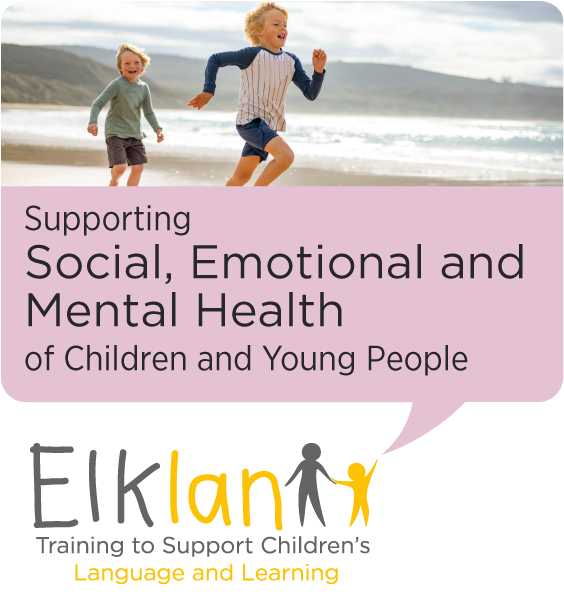Speech and Language Support for 3-5s - elearning
Speech and Language Support for 3-5s - elearning
Speech and Language Support for 3-5s - elearning
This course is also available via face-to-face training
Give every child the best start in communication, learning and life
Between the ages of three and five, children’s speech, language and communication skills develop at a remarkable pace, forming the foundation for social skills, emotional wellbeing, literacy, and learning. Yet many children enter nursery or school with language delays that, if left unsupported, can impact their progress for years to come.
Elklan’s Speech and Language Support for 3–5s course equips practitioners with practical, evidence-based strategies to help every child communicate with confidence.
Developed by Speech and Language Therapists, this accredited course empowers Early Years practitioners to identify speech and language needs early, and provide the right support where it matters most.
Training Formats
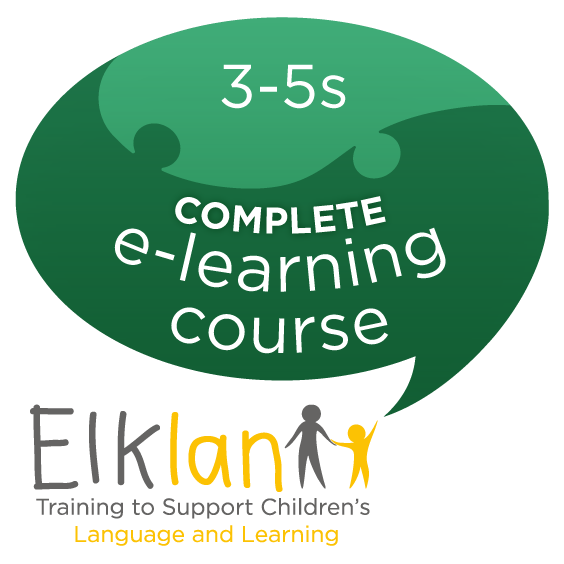
Online Training
£420 plus VAT per person.
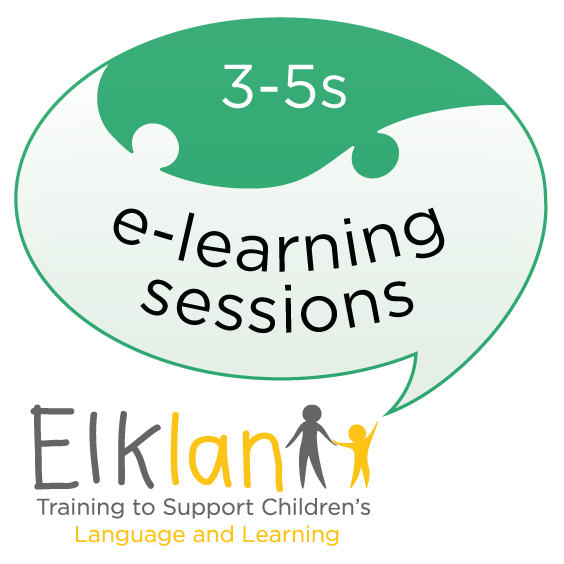
Online Non-Accredited e-learning
£295 for 12 weeks' access.
Swipe to view more
Course Content
Over ten sessions, you’ll explore how to support every aspect of communication and language development in children aged 3–5:
Explore what’s really involved in communication, including speech, language, and non-verbal interaction. Understand the “Communication Chain” and how each part supports a child’s ability to learn and connect. Learn how to recognise early differences and the importance of early intervention.
Learn how to create environments where communication can flourish. Discover practical ways to adapt routines, resources and interactions to support every child, including those who are neurodivergent or learning an additional language. Work in partnership with families to share strategies and extend communication support beyond the setting.
Understand the stages of attention and listening development and how these affect learning.
Learn to use visual cues, gestures, and routines to help children focus and understand instructions.
Includes neuro-affirming approaches that respect individual differences in how children attend and engage.
Discover how children learn words and what helps them retain and use them.
Gain practical strategies to teach new words for objects, actions, descriptions and emotions — across play, routines and home links. Learn how to plan vocabulary development for all children, including those learning an additional language.
Explore how children understand what is said to them and how we can make language easier to process.
Learn to simplify language without “dumbing down”, and use the Information Carrying Words approach to support comprehension and memory. Includes activities to build auditory memory and understanding through play.
Learn to ask the right questions at the right level. This proven framework helps practitioners adapt their language to a child’s understanding, build verbal reasoning, and support positive behaviour. Discover how to use the levels to develop comprehension and thinking skills.
Understand how young children learn to put words together and express their ideas. Learn how to model, expand and support sentence building naturally in play, routines, and small-group activities. Includes practical guidance for supporting children learning an additional language.
Explore the vital link between play and language. Learn how to identify stages of play, from exploratory to imaginative and social, and how to use play to strengthen communication, vocabulary and emotional understanding. Includes strategies for supporting schematic, sensory and social play.
Gain insight into how speech sounds develop and how to support children whose speech is difficult to understand. Learn fun, play-based ways to develop phonological awareness, the foundation for literacy.
Understand when and how to seek additional Speech and Language Therapy support.
Build understanding of what stammering is and how to create a supportive, pressure-free environment for children who stammer. Learn how to reduce anxiety and promote confidence, ensuring that every child feels heard and valued. Gain guidance on how to share information with parents sensitively, helping them understand and support their child’s communication with confidence.
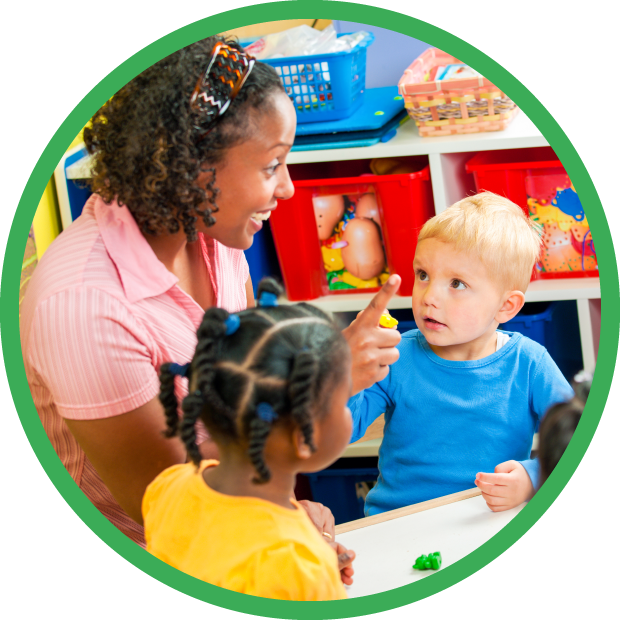

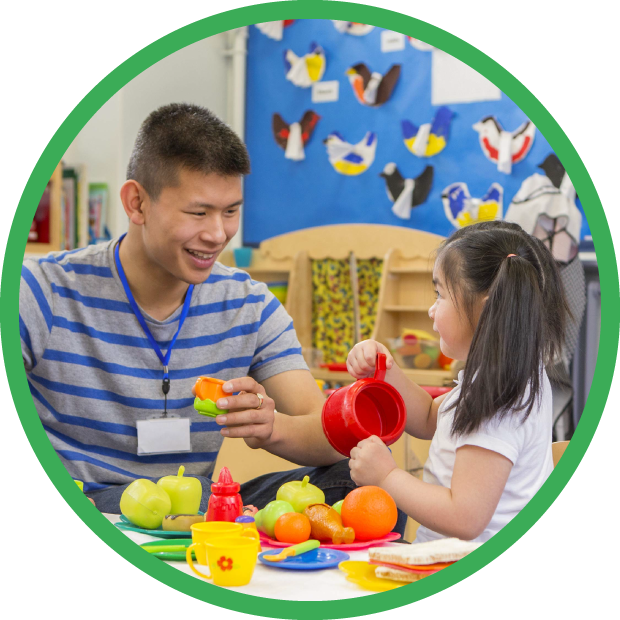
Why Choose Elklan Training?
Elklan is the UK’s leading provider of training on speech, language and communication, created and delivered by qualified Speech and Language Therapists and Specialist Teaching Advisors.
More than 100,000 practitioners have already gained Elklan accreditation, making a measurable difference in classrooms nationwide.
This course covers practical, evidence-based strategies that can be implemented in the classroom immediately.
Learning Outcomes
Participants will:
- Identify a wide range of speech, language and communication needs (SLCN) in early years children.
- Apply practical, play-based strategies to develop communication in everyday routines and activities.
- Confidently adapt the learning environment to support children with SLCN.
- Strengthen children’s attention, listening, vocabulary, understanding and social interaction.
- Embed communication-supportive practice across early years settings to improve outcomes for all.
Course Structure and Accreditation
- 10 weekly sessions
- Delivered face-to-face or online by trained Elklan tutors
- Includes the Language Builders for 3-5s coursebook
- Leads to Level 2 or Level 3 Award in Speech and Language Support for 3–5s (accredited by OCN London).
Why Schools Choose Elklan
Nationwide Tutor Network of over 4,500 specialists
Evidence-based, practical and classroom-focused
Builds practitioner confidence and consistency in supporting SLCN
Improves children’s communication, wellbeing and school readiness
Forms part of the Elklan Communication Friendly Settings (CFS) pathway
Available courses
Accredited Online Training - Weekly Webinars
Accredited Online Training - Fortnightly Webinars
Compare the options

|

|
|
|---|---|---|
|
Online Training |
e-learning sessions |
|
| Targeted strategies for specific age range |
|
|
| Language Builders for 3-5s |
e-book |
e-book |
| Anytime access to the e-learning sessions |
Twelve weeks |
Twelve weeks |
| Teaching from an Elklan Tutor | ||
| Discuss and share with other learners |
|
|
| External accreditation with a 9 credit Award on successful completion |
|
|
| Learning log to complete online |
|
|
| Time commitment per course for all aspects | 4-4½ hours total per week* | 1-1½ hours per week |
| £420 plus VAT |
£295 |
|
| Find upcoming courses | Purchase now | |
|
*This is an accredited course and so you will need to actively engage with the training and complete a learning log. To do this you should expect to set aside around 4½ hours weekly. This will include:
|
Further training opportunities
NEW! CPD Workshops
We offer a range of one-hour CPD workshops over one or two sessions designed specifically for Elklan-trained practitioners working in Early Years and Key Stages 1 and 2.
Let's Talk courses for parents and carers
If you achieve a level 3 qualification in Speech and Language Support for 3-5s, you can train to deliver Let's Talk with Under 5s, Let's Talk with Your Baby or Let's Talk at Home to parents and carers of children with speech and language needs in your setting. Following a one-day course, you'll be qualified as a Let's Talk Tutor, able to cascade the Let's Talk course under licence.
Communication Friendly Settings (CFS)
Speech and Language Support for 3-5s is an essential first step for your setting to achieve Communication Friendly Setting status. You will need to complete the level 3 qualification first before enbarking on the level 4 learning log.
Specialist Courses
These courses are ideally suited for you if you have completed an eight- or ten-session core course and wish to take your learning further.



